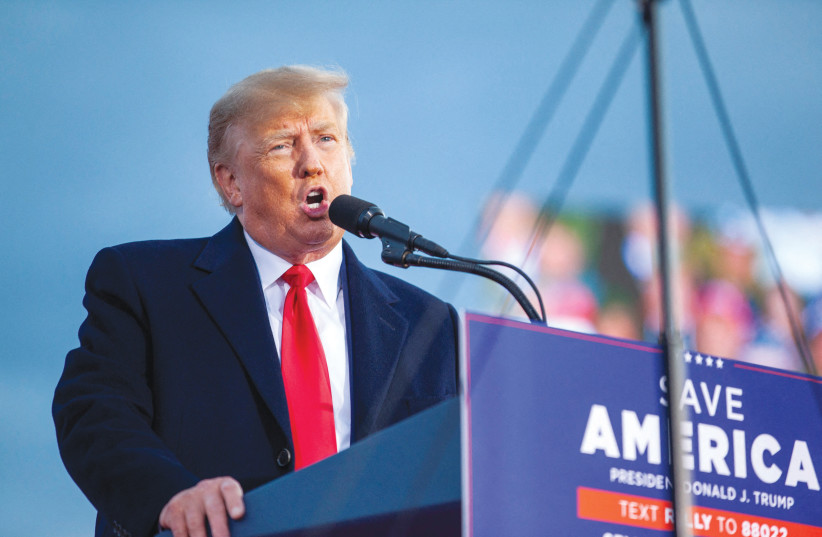Trump’s exchange is recounted in the new book “The Divider,” by married journalist couple Susan Glasser and Peter Baker and in an excerpt from The New Yorker.

Former President Donald Trump wanted his military advisors to be more like “the German generals in World War II,” according to a new book about the Trump presidency that quotes from his administration’s top personnel.
Trump reportedly relayed this vision to Chief of Staff John Kelly as part of his irritation that his own generals were prone to push back on his orders rather than accept them with blind loyalty. When Kelly responded, “You do know that they tried to kill Hitler three times and almost pulled it off?” Trump disputed this history, insisting, “No, no, no, they were totally loyal to him.”
This exchange is recounted in the new book “The Divider,” by married journalist couple Susan Glasser and Peter Baker, and in a New Yorker excerpt. The book features interviews with several of Trump’s top generals, almost all of whom did not enjoy working for the president, and recounts how Trump appointed Mark Milley as chairman of the Joint Chiefs of Staff in the hopes that his military advisors would serve as “yes-men” who would sign off on all of his proposals.
A US president speaking admiringly of Nazi Germany’s military prowess is unusual considering it was largely employed for the systematic mass slaughter of Europe’s Jews, but Trump was known for prizing staff loyalty above all else. This made his military officers uncomfortable, yet many of them continued to stick around, according to the book.
Milley, for example, drafted a letter of resignation the week after he accompanied Trump on a militarized photo-op to a Washington, DC, church at the height of the nationwide Black Lives Matter protests during the summer of 2020, writing that the president is “ruining the international order” formed on the back of an earlier generation that “has fought against fascism, has fought against Nazism.” Yet Milley stayed in his role, and today remains chairman of the Joint Chiefs under President Joe Biden.
In the run-up to the 2020 election, Milley also feared that Trump might seek out a “Reichstag moment” to exploit his own lies about the election being rigged, referring to Adolf Hitler’s propagandistic exploitation of the Reichstag fire in 1933 as justification for seizing control of Germany. Milley even believed Trump’s behavior to be “Hitler-like,” according to the book. His fears included that the president could declare martial law or invoke the Insurrection Act; Milley secretly communicated with a back channel of administration and military officials in attempts to keep the peace.
Trump’s volatility in the period after the election was also provoked by Israel’s then-prime minister Benjamin Netanyahu, according to Milley, who believed that Netanyahu was trying to provoke the president to launch a military strike against Iran before he left office. In a conversation Glasser first reported in the New Yorker last year, Milley said he personally confronted Netanyahu in Jerusalem and told him to back off, then warned Trump, “If you do this, you’re going to have a f–king war.”
Several attempts to assassinate Hitler were made by German military officers during World War II, of which the most famous ones were the Oster Conspiracy of 1938 and Colonel Claus Schenk von Stauffenberg’s bomb plot of 1944.
As reported by The Jerusalem Post
